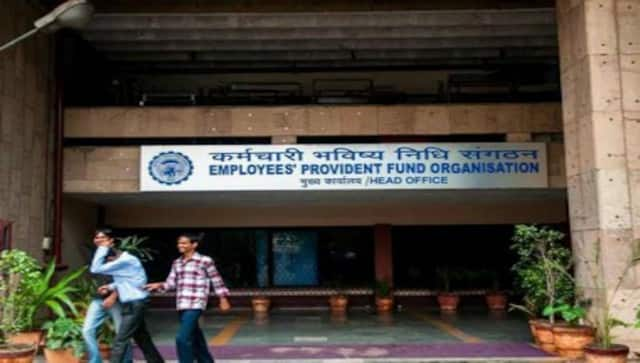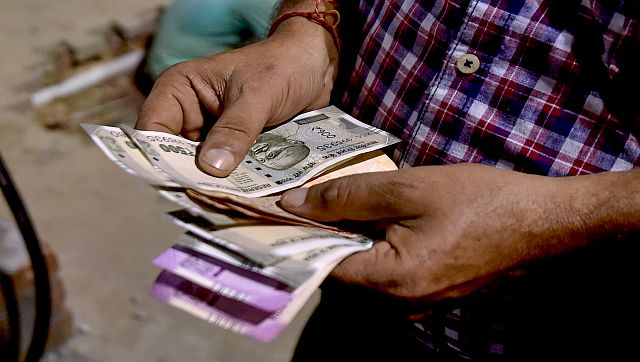Wednesday is the last day employees can choose a higher pension under the Employee Pension Scheme (EPS). Employees can do so after the Supreme Court upheld the Employees’ Pension (Amendment) Scheme in November. But should you opt for the higher pension? Let’s take a closer look: What is it? First, let’s briefly examine EPS and Employee Provident Fund (EPF). The EPF and EPS are government-run savings schemes for salaried employees. They both come under the Employee’s Provident Fund & Miscellaneous Provisions Act, 1952. While both the employer and employees contribute to the EPF, only employees contribute to EPS. How does it work? The employer and employee together deposit 12 per cent of the salary – basic plus dearness allowance – in the EPF. The employer puts 3.67 per cent in EPF and 8.33 per cent in EPS.
Employees, as mentioned earlier, do not contribute to EPS.
Only those whose salary and dearness allowance comes to Rs 15,000 are eligible for EPS. They can get pension from this scheme after the age of 58. If the employee dies, the pension continues to be paid to the employee’s nominee or heir. What happened? In August 2014, the EPS amendment raised the pensionable salary cap first pegged at Rs 5,000 a month and later Rs 6,500 per month to Rs 15,000 per month. The court then delivered a verdict allowing EPFO members to contribute 8.33 per cent of their actual salaries rather than 8.33 per cent of the pensionable salary (capped at Rs 15,000 per month). [caption id=“attachment_12537422” align=“alignnone” width=“640”] Representational image. PTI[/caption] But many people remained unaware of this. Employees from various establishments then filed more than 50 writ petitions seeking invalidation of the 2014 amendment. The Kerala High court in 2018 quashed the 2014 scheme. The Delhi High Court in its 2019 verdict also echoed the Kerala High Court, while the Rajasthan High Court that same year delivered a similar opinion. The Supreme Court in November put an end to all the debate and finally upheld the 2014 amendment. So, should you opt for it? That remains a matter of debate.
Representational image. PTI[/caption] But many people remained unaware of this. Employees from various establishments then filed more than 50 writ petitions seeking invalidation of the 2014 amendment. The Kerala High court in 2018 quashed the 2014 scheme. The Delhi High Court in its 2019 verdict also echoed the Kerala High Court, while the Rajasthan High Court that same year delivered a similar opinion. The Supreme Court in November put an end to all the debate and finally upheld the 2014 amendment. So, should you opt for it? That remains a matter of debate.
Experts say one must have a sound idea of one’s finances before taking such a call.
According to Business Today, an employee must take into consideration the pension they are likely to receive and the amount of EPF money they will give up before deciding whether it is worth investing in. Saraswathi Kasturirangan, partner, Deloitte India, explained to MoneyControl, pension is defined as “pensionable salary X number of years of contribution / 70.” “Pensionable salary for this purpose has been defined as the average of the last 60 months’ salary. The application for higher pension contribution clearly calls out that the government is empowered to amend the scheme at any point in time, and that the members abide by the amended scheme. In practice, if the government subsequently amends the formula for pension, members may end up with lower pensions than expected.” And more clarity is awaited on certain issues. Added Kasturirangan, “A large amount will be hived off from my PF to provide for my pension, but I have no idea about my life expectancy. What if the pensioner dies after, say, 10 years? This is an annuity scheme but it does not come with a return of purchase price option (unlike other annuity options). Also, it is based on a formula and is not linked to inflation (which means its value in real terms will erode over a period of time).” Business Today added that certain other factors need to be kept in mind including:
- Do you think you have enough left in retirement for medical and other expenses?
- Will you be able to repay loans or fund your children’s education?
- Do you think you will live a long life?
- Can you invest in other options such as mutual funds to get better returns?
- Do you think the government and EPF will not tweak the pension formula over the years?
According to Business Today, if the above issues give you pause, it might simply be better to skip the EPS and cash out your EPF lumpsum on retirement. With inputs from agencies Read all the Latest News , Trending News , Cricket News , Bollywood News , India News and Entertainment News here. Follow us on Facebook _,_ Twitter and Instagram _._
)